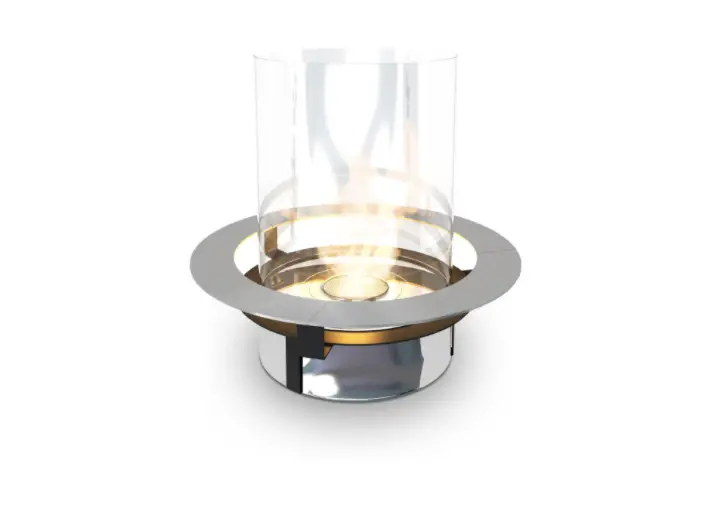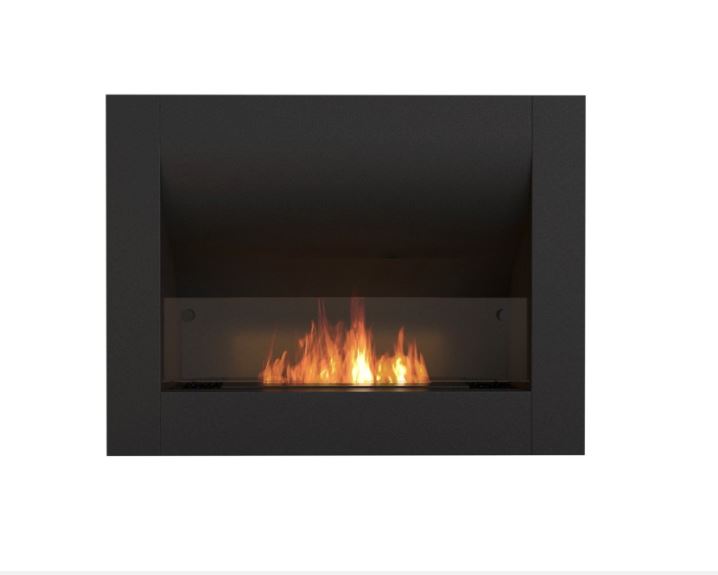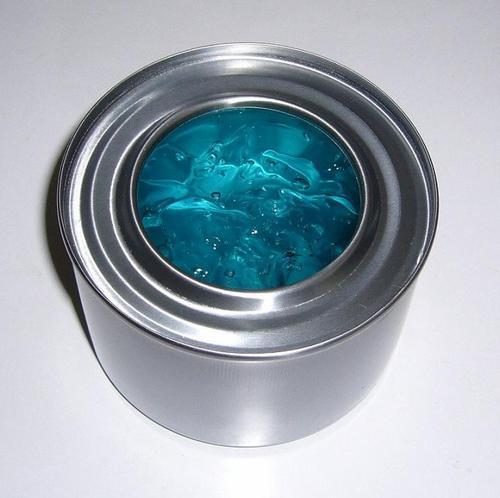Not only are Ethanol fireplaces aesthetically pleasing but also good in producing heat. The amount of heat produced depends on a number of factors. It mainly depends on the model of the Ethanol heater unit. Larger models produce larger flames thus producing more heat. The vice versa is also true.
Moreover, ethanol fireplaces produce more heat because they do not have a flue. Flues provide a way for heat to escape from the heater unit. Typically, an ethanol fireplace would produce 3-kilowatt-hour of heat when at optimum fuel consumption. This is a good level of heat production.
To put it into perspective, an electric fireplace would produce a 2-kilowatt hour of heat at optimum functions. You should never worry about the heat levels during winter if you own an ethanol fireplace. The heat production can also be adjusted using a slider to suit your needs.
How Long Does an Ethanol Fireplace Burn?
You need to just buy the fuel for you to enjoy the warmth of an ethanol fireplace. Squeeze the fuel into the fuel chamber, turn it on and relax. But, for how long exactly will you enjoy the warmth? This will depend on the choice of how to use the fireplace.
Typically, a liter of ethanol would keep the fireplace on for about 3 to 4 hours. When the slider is fully open, it will only last 3 hours. For half-opened sliders, the fireplace can keep burning for up to 4 hours.
Also, the size of the fireplace does determine the period it will light. The size of the fuel box is the main determinant. Often ethanol fireplaces with huge fuel boxes light for a longer time. It is also advised to get an ethanol fireplace with an adjustable slider. This will help control the fuel consumption rate.
Is a Chimney Necessary for an Ethanol Fireplace?
No, you do not need a chimney when using an ethanol fireplace. This is because they produce little or no smoke. This is the main reason they are common to people who live in flats.
If you already have a chimney in your house, you can still use ethanol fireplaces. However, the chimney provides a pathway for the heat to be lost to the outside. A blocked chimney can help retain the heat in the room.
The Best Practices for an Ethanol Fireplace
You cannot experience the best from an ethanol fireplace if you do not follow these practices. Some of the practices are intended to keep you safe and prevent accidents. These include;
- Always try using the right fuel
Your new ethanol fireplace will not work properly if you do not use the right fuel. A high-quality fuel will help you get the optimal heat output. Check on the alcohol percentage which should be above 96%. Low alcohol content hinders the burning efficiency and eventually lowers the heat output.
- Follow the manufacturer’s instructions
Most of the time, a new ethanol fireplace is accompanied by a set of manufacturer’s instructions. You will need to go through it carefully. They will show you how to safely operate, install and maintain the appliance. DIY ethanol fireplaces are not recommended for your own safety.
- Do not use ethanol fireplace in tightly sealed homes
This will help avoid the risk of carbon monoxide poisoning. If the situation is unavoidable, make sure to install a carbon monoxide detector in your home. However, proper air circulation should be given priority.
- Do not move an ethanol fireplace while it is still on; wait for it to cool down.
- Do not place an ethanol fireplace near flammable households. These may include things like sofas, curtains, or carpets
- Never leave the ethanol fireplace unattended
- Try to buy quality certified products in the market
- The exterior can be cleaned using a damp cloth
Benefits of an Ethanol Fireplace
An ethanol fireplace has many advantages because of the technology used. In comparison to a traditional fireplace, you get the same ambiance flame without smoke. They are simpler and cleaner to use also. Here are more pros of ethanol fireplaces;
- They do not need a vent thus no need for installation in your home
- Portable thus can be taken around the home easily
- Different models allow you to maximize the space in the house. Tabletop and wall-mounted models do not take up a lot of space.
Cons of Ethanol Fireplace
Is the heat enough for your home? This is the bad news with ethanol fireplaces as they cannot generate enough heat for the whole house. Here are some more drawbacks to using ethanol fireplaces;
- Carbon dioxide and trace amounts of combustible products are produced after combustion. Such products are harmful to our health.
- Accidental fires can burn your house down; be cautious.
Conclusion
Ethanol fireplaces produce reasonable amounts of heat as seen above. However, they cannot be used as supplements to your home’s heating system. Their heat output is not as high compared to other types of fireplaces. You just have to select a high-quality unit and fuel, then you will be sorted for the winter.


